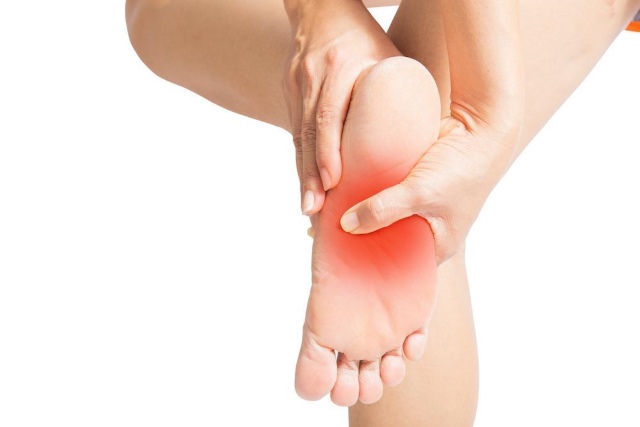Neuropathy in Feet: Unraveling the Mystery and Embracing Effective Management

A Silent Epidemic
Neuropathy, a condition characterized by nerve damage, affects millions worldwide, with a significant portion experiencing symptoms in their feet. This intricate network of nerves, responsible for sensation and movement, can be compromised by various factors, leading to a spectrum of debilitating symptoms. In the realm of neuropathy, feet often bear the brunt of the damage, transforming everyday activities into arduous challenges.
Unraveling the Tapestry of Peripheral Neuropathy
Peripheral neuropathy, the most common type of neuropathy, specifically targets the nerves outside the brain and spinal cord. This damage disrupts the delicate communication between the central nervous system and the extremities, leading to a range of sensory, motor, and autonomic disturbances.
A Mosaic of Causes: Unveiling the Culprits Behind Neuropathy in Feet
The underlying causes of neuropathy in feet are as diverse as the symptoms they manifest. While diabetes stands as the most prevalent culprit, a multitude of factors can trigger nerve damage, including:
-
Autoimmune disorders: Conditions like lupus and rheumatoid arthritis can attack the body’s own nerve tissues.
-
Infections: Viral infections, such as shingles and HIV, can damage nerves.
-
Vitamin deficiencies: Deficiencies in vitamins B1, B6, and B12 can contribute to neuropathy.
-
Toxins: Exposure to heavy metals, pesticides, and solvents can harm nerves.
-
Trauma: Physical injuries to the feet or legs can damage nerves.
A Symphony of Symptoms: Recognizing the Signs of Neuropathy in Feet
The clinical presentation of neuropathy in feet is as varied as its underlying causes. However, some common symptoms include:
-
Numbness: A loss of sensation, often starting in the toes and gradually progressing upwards.
-
Tingling: A prickling or burning sensation, often described as “pins and needles.”
-
Pain: A burning, aching, or throbbing pain that can be aggravated by movement or touch.
-
Weakness: Difficulty lifting, bending, or controlling the feet.
-
Balance issues: Instability and loss of balance, increasing the risk of falls.
Navigating the Diagnostic Maze: Unveiling the Neuropathy Puzzle
Diagnosing neuropathy in feet requires a comprehensive approach, encompassing a detailed medical history, thorough physical examination, and a range of diagnostic tests. These tests may include:
-
Nerve conduction studies: Measure the electrical activity of nerves to assess their function.
-
Electromyography (EMG): Evaluates the electrical activity of muscles to detect nerve damage.
-
Blood tests: Check for underlying conditions like diabetes or vitamin deficiencies.
-
Imaging tests: X-rays, MRIs, or CT scans may be used to rule out other potential causes of foot problems.
Charting the Course of Treatment: Tailored Interventions for Neuropathy in Feet
The treatment plan for neuropathy in feet is individualized, addressing the underlying cause and managing symptoms. Treatment modalities may include:
-
Controlling underlying conditions: Managing diabetes, autoimmune disorders, or infections is crucial.
-
Pain management: Over-the-counter pain relievers, prescription medications, or topical treatments can alleviate pain.
-
Physical therapy: Exercises and stretches can improve strength, balance, and coordination.
-
Surgical interventions: In severe cases, surgery may be considered to relieve pressure on nerves.
Prevention: Shielding Your Feet from Neuropathy’s Grip
While not all cases of neuropathy are preventable, certain lifestyle modifications can reduce the risk:
-
Managing blood sugar levels: Maintaining healthy blood glucose levels is essential for diabetic neuropathy prevention.
-
Maintaining a healthy weight: Excess weight can increase the risk of neuropathy.
-
Quitting smoking: Smoking damages blood vessels, hindering nerve function.
-
Protecting from toxins: Avoiding exposure to harmful chemicals and heavy metals is crucial.
-
Foot care: Regular foot examinations, proper footwear, and wound care can prevent complications.
A Journey of Hope and Resilience
Neuropathy in feet can be a debilitating condition, but with proper diagnosis, treatment, and self-management, individuals can regain control of their lives. By understanding the causes, symptoms, and treatment options, those affected by neuropathy can embark on a journey of hope and resilience, navigating the labyrinth of this complex condition with newfound knowledge and determination.








